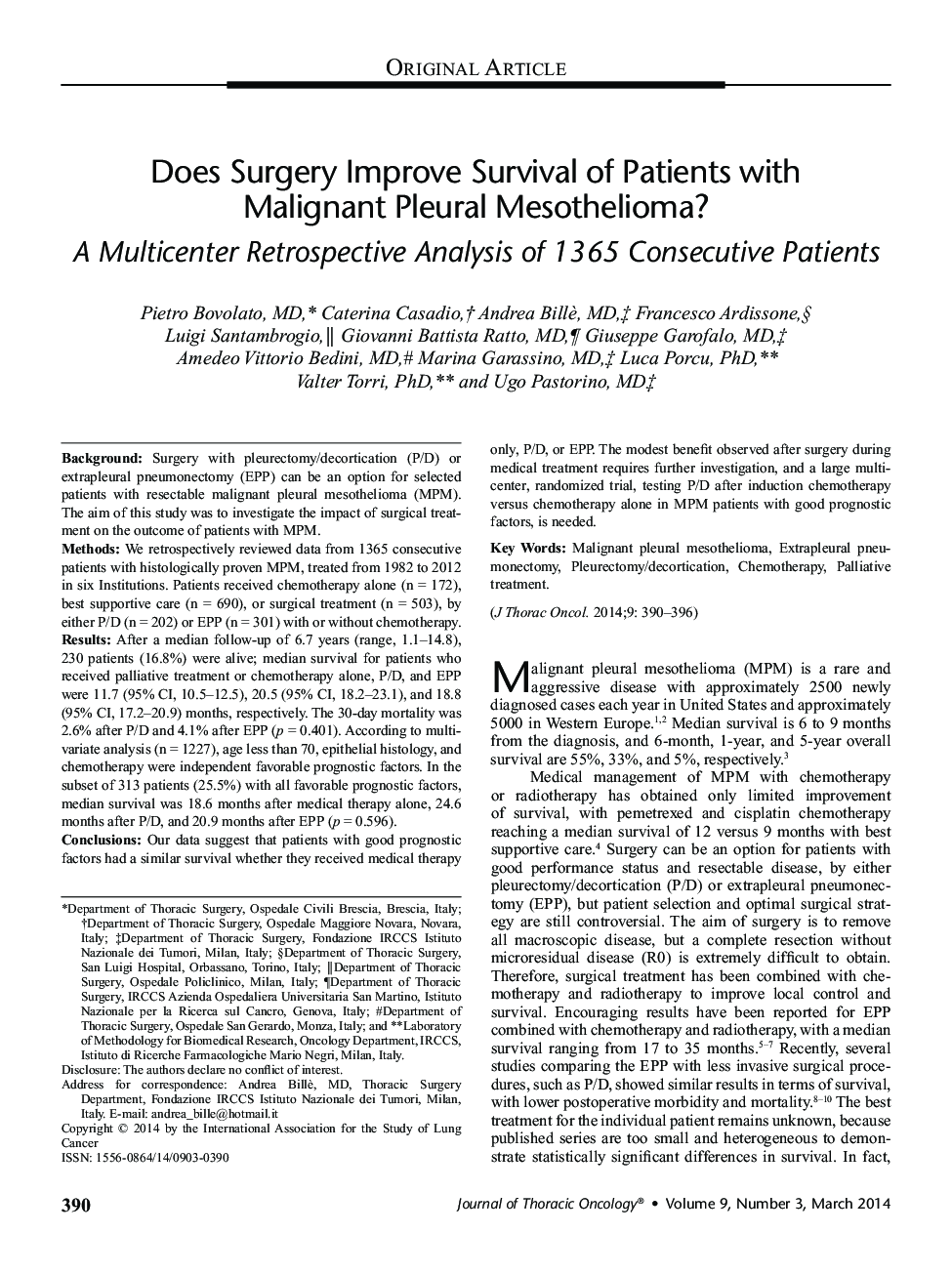| Article ID | Journal | Published Year | Pages | File Type |
|---|---|---|---|---|
| 6193468 | Journal of Thoracic Oncology | 2014 | 7 Pages |
Background:Surgery with pleurectomy/decortication (P/D) or extrapleural pneumonectomy (EPP) can be an option for selected patients with resectable malignant pleural mesothelioma (MPM). The aim of this study was to investigate the impact of surgical treatment on the outcome of patients with MPM.Methods:We retrospectively reviewed data from 1365 consecutive patients with histologically proven MPM, treated from 1982 to 2012 in six Institutions. Patients received chemotherapy alone (n = 172), best supportive care (n = 690), or surgical treatment (n = 503), by either P/D (n = 202) or EPP (n = 301) with or without chemotherapy.Results:After a median follow-up of 6.7 years (range, 1.1-14.8), 230 patients (16.8%) were alive; median survival for patients who received palliative treatment or chemotherapy alone, P/D, and EPP were 11.7 (95% CI, 10.5-12.5), 20.5 (95% CI, 18.2-23.1), and 18.8 (95% CI, 17.2-20.9) months, respectively. The 30-day mortality was 2.6% after P/D and 4.1% after EPP (p = 0.401). According to multivariate analysis (n = 1227), age less than 70, epithelial histology, and chemotherapy were independent favorable prognostic factors. In the subset of 313 patients (25.5%) with all favorable prognostic factors, median survival was 18.6 months after medical therapy alone, 24.6 months after P/D, and 20.9 months after EPP (p = 0.596).Conclusions:Our data suggest that patients with good prognostic factors had a similar survival whether they received medical therapy only, P/D, or EPP. The modest benefit observed after surgery during medical treatment requires further investigation, and a large multicenter, randomized trial, testing P/D after induction chemotherapy versus chemotherapy alone in MPM patients with good prognostic factors, is needed.
